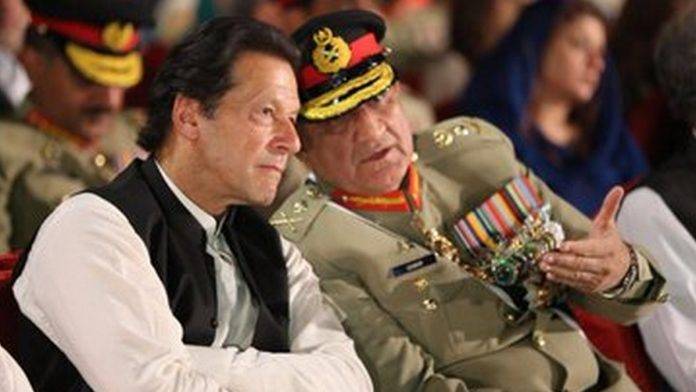
At the popular level, every other argument about politics in Pakistan society starts, concludes, and revolves around the complaint that the incumbent government has failed to deliver on its promises and has no direction that can lead towards resolution of people’s problems.
This view is generally and firmly held about every government that ruled Pakistan in the post-Ziaul Haq period—successive governments have been perceived to have shown the ineptitude towards issues related to governance and have attracted the popular wrath in parliamentary elections. One clear sign of this popular disapproval is the fact that no incumbent government has been elected for the second term in the post-Zia period.
It so happens in our society that when a government completes a year or so in power in Islamabad, the people start expressing disapproval.
In the post-Musharraf period, the civilian and elected governments’ failures have been perceived to be more deeply felt at the popular level. The government is blamed for its inability to control the price hike and deteriorating economic and financial conditions of the country, its failure to control the deteriorating law and order conditions in the society, and every other incident at the regional and international level that causes embarrassment to Pakistan internationally.
In short, the government is perceived to be the source of every hardship people face. This could be any government, which comes into power as a result of the electoral process provided in the 1973 Constitution. What exact entity Pakistani people perceive to be “government” when they make the claim that “the government has failed”?
In Pakistan, people perceive a group of people or a political party that wins the parliamentary elections and assume the charge of various ministries under the leadership of their leader— who is a political star of sorts—to be the government of the time. These people, who win elections at the conclusion of a hectic election campaign, in which they make all sorts of lofty promises, are generally perceived to be in full power and are perceived at the popular level to have all the requisite legal, administrative and political powers to resolve the problems faced by the people. This group of people could be PPP “Jiyalas” under the stewardship of former president Asif Ali Zardari, or PML-N’s middle-class leadership led by former prime minister Nawaz Sharif or PTI upper-class elite led by cricketer turned politician, Imran Khan—as is presently the case.
Ironically, absent from our political discourse is a sophisticated understanding of the dynamics of government and state structures. Also absent from our discourse is the understanding that every political government—whether one or the other set of politicians control it—has to preside over the same state structure and state machinery after getting elected.
There is now well documented political and analytical literature that clearly establishes that the administrative capacity of police and administrative machinery to maintain law and order has been greatly diminished over the past three decades. The politicization of police, treatment of civil servants as their personal servants by the rulers, and absence of reforms led to a situation where this state machinery is simply incapable of maintaining law and order. Blaming political governments for the failure and incapacity of the state machinery could be justified only to the extent that these political governments, during their tenures, have failed to initiate required reforms in the administrative structure of the state. Pakistani state machinery’s incapacity to deal with the problems faced by the society is not the result of mismanagement during a single tenure of an elected government. The administrative machinery is rotten to the core. It lacks the capacity of service provision to the people.
The political discourse that is prevalent in our society doesn’t take into account this reality— the reality that our state structure lacks the capacity to deal with the challenges our society is facing. We instead waste our time blaming the political parties, which for a limited period of time are allowed to roam around in the power corridors. This leaves the main problem of lack of capacity of the state machinery unaddressed, unstudied, and unanalyzed. The political groups come and indulge in some merry go round activity, face some scathing criticism for their failures (which are in fact the failures of the state machinery) and are forced to leave the power corridors before they could identify the real problem.
Our capacity to resolve conflicts peacefully has dwindled over the past three to four decades. This has led to a situation where the use of force and violence by private groups has become endemic in our society. The state has lost a monopoly over violence in society. The superfluous nature of our political discourse is exemplified by the fact that we start blaming our transitory elected governments for this failure to maintain law and order. Whereas in reality, our law and order problems stem from our regional misadventures, our fatal mistake of using violence as a tool of our regional foreign policy and the suicidal tendency of various institutions in our state machinery to become party to religious, social and political conflicts that exist in our society.
Political groups and parties that come to power in Islamabad could be blamed for the failure to introduce reforms, but they cannot be blamed for faulty state machinery--a result of decades-long mismanagement for personal and political gains.
To focus on these problems we will first have to improve the quality of our political discourse. Blaming the transitory political governments will not solve the problems.
